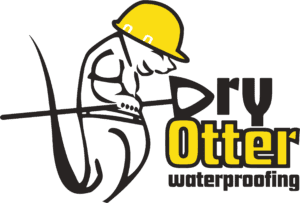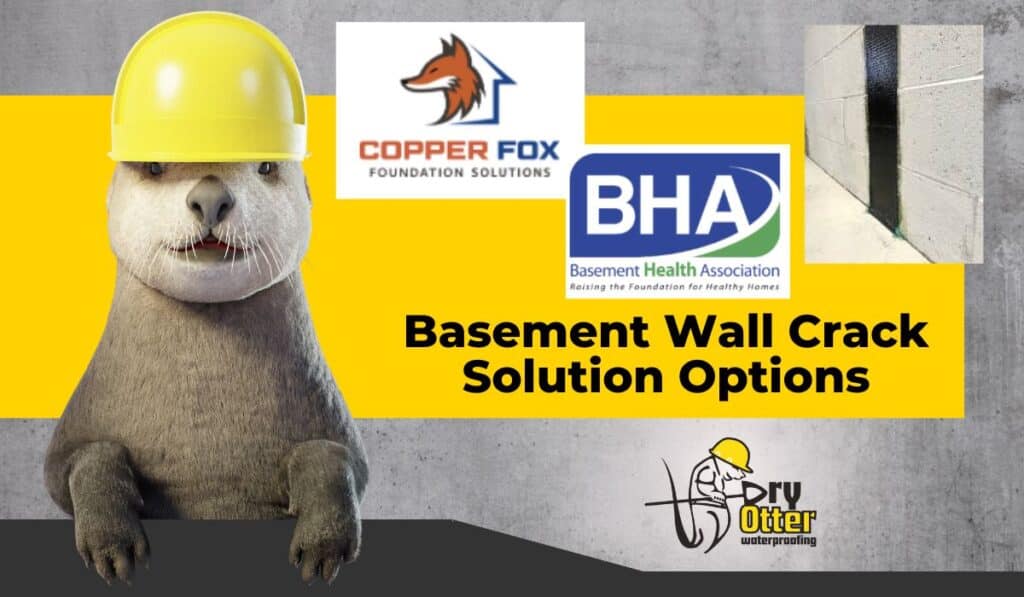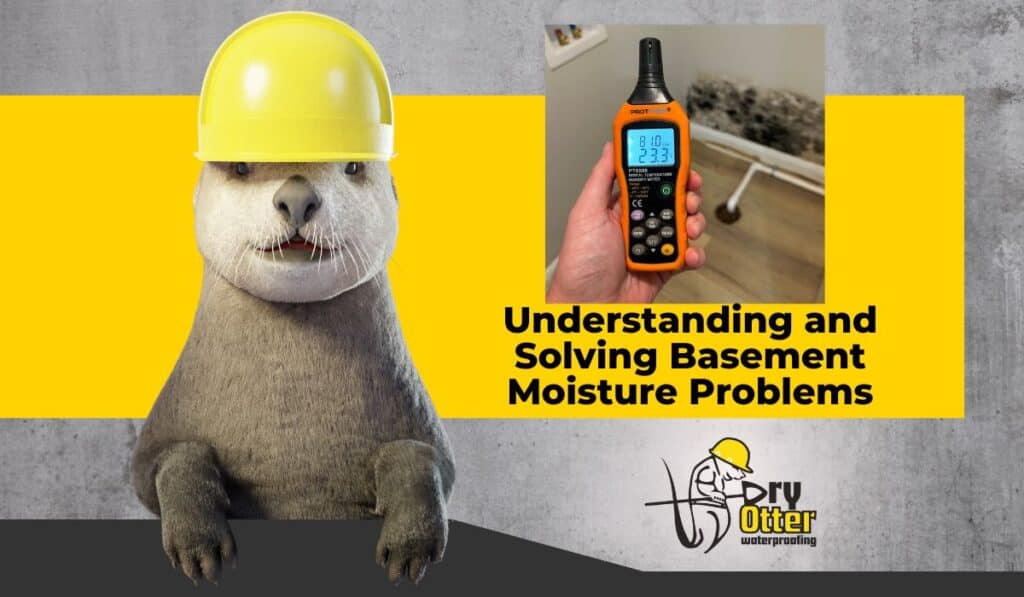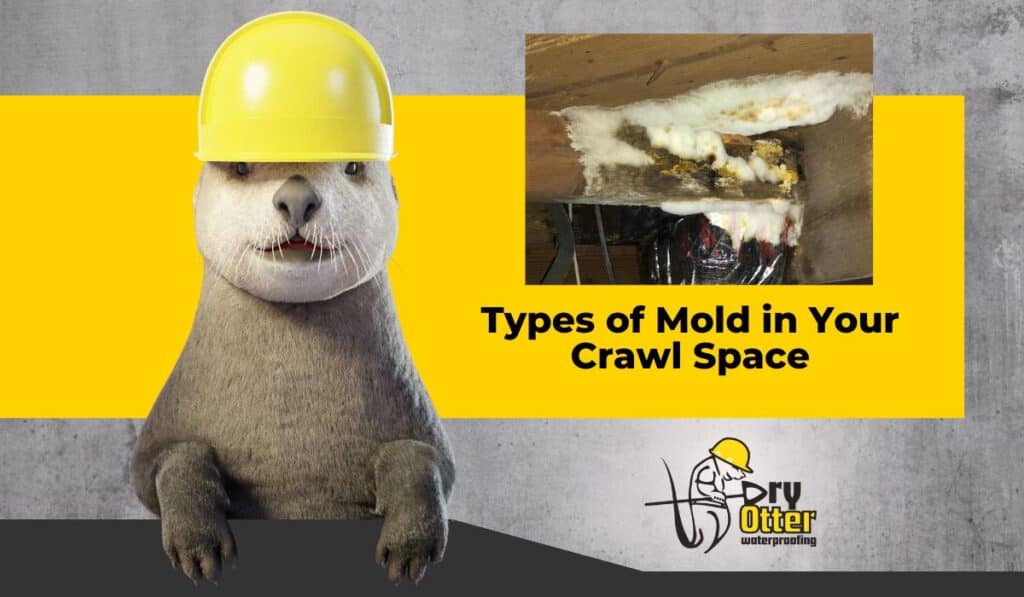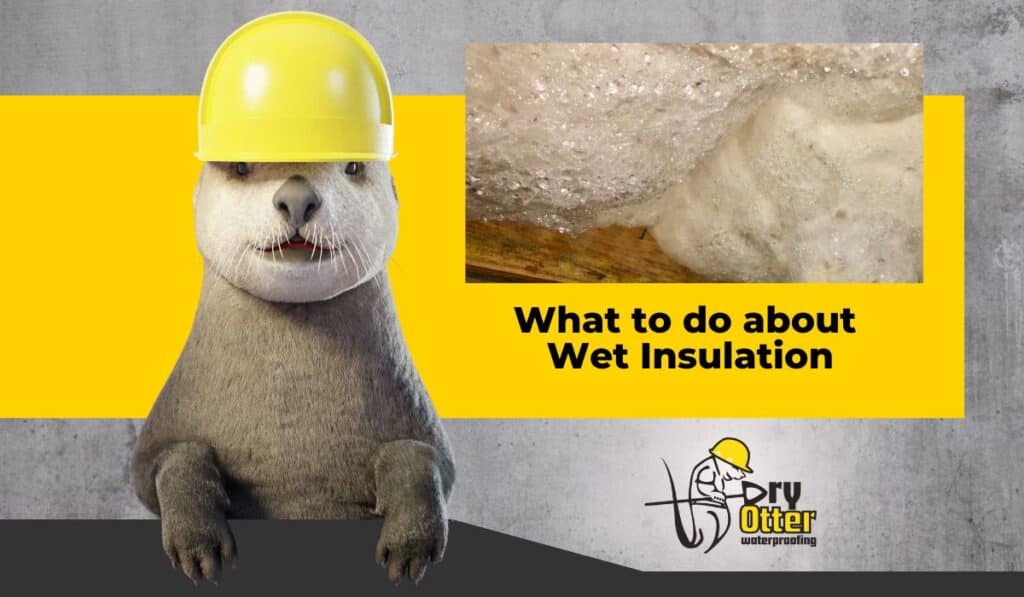One of the most important things you can do for your family’s health is to know how to prevent mold growth in your basement.
Mold is a general term for fungi that grow in black, green, white, and red colors. Mildew is usually a powdery, white residue, while mold is typically fuzzy or slimy.
Basements are perfect breeding grounds for mold because mold thrives in damp, dark environments close to the ground.
Beyond the serious health issues that mold presents, structural damage to your home is another reason to eliminate mold growth.
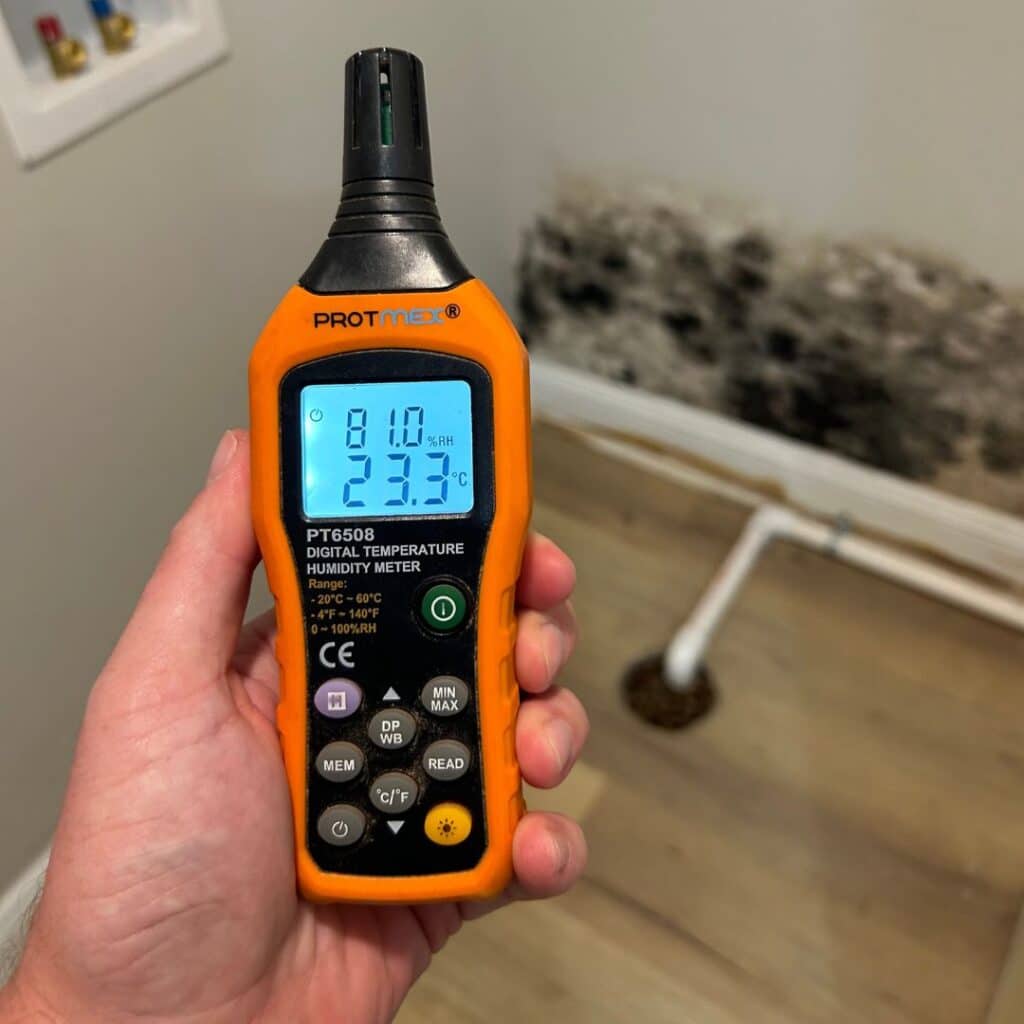
Understanding the Causes of Basement Mold
Basement mold control is one of the most critical home maintenance tasks you can perform to keep your home healthy and structurally sound. Regular inspections are the key.
Common causes of mold to aid in basement mold control:
- Water damage: Leaks, flooding, and condensation are all culprits.
- High humidity: Basements are naturally more humid and damp due to poor ventilation.
- Poor ventilation: Lack of airflow creates stagnant air, leading to mold growth.
- Organic materials: Paper and wood both feed mold growth.
- Warm temperatures: Mold thrives in temperatures between 60 and 90 degrees Fahrenheit.
- Lack of sunlight: Sunlight is excellent for basement mold control because it is a natural killer, but unfortunately, most basements don’t offer much natural sunlight.
- Cracks: Cracks in your walls or foundation allow moisture to enter, providing a place for mold to thrive.
- Plumbing leaks: leaking pipes and drains pose a serious threat.
- Condensation and soil moisture: Moisture is released from the soil when warm air cools, increasing the humidity levels and potentially leading to mold growth.
How to Prevent Mold in Your Basement
There are a few things to know to learn how to prevent mold in your basement. It starts with these four crucial steps:
- Control moisture levels: A dehumidifier is the best way to keep humidity levels low in your basement.
- Fix leaks and cracks: Regularly inspect your basement for leaks and cracks in walls, foundation, and windows. Fix any trouble spots before water can enter.
- Ventilation: Install proper ventilation to keep air flowing by installing vents or fans in areas prone to excess moisture.
- Waterproofing: Waterproofing your basement is one of the most powerful ways to keep your basement safe, dry, and free from dangerous mold growth.
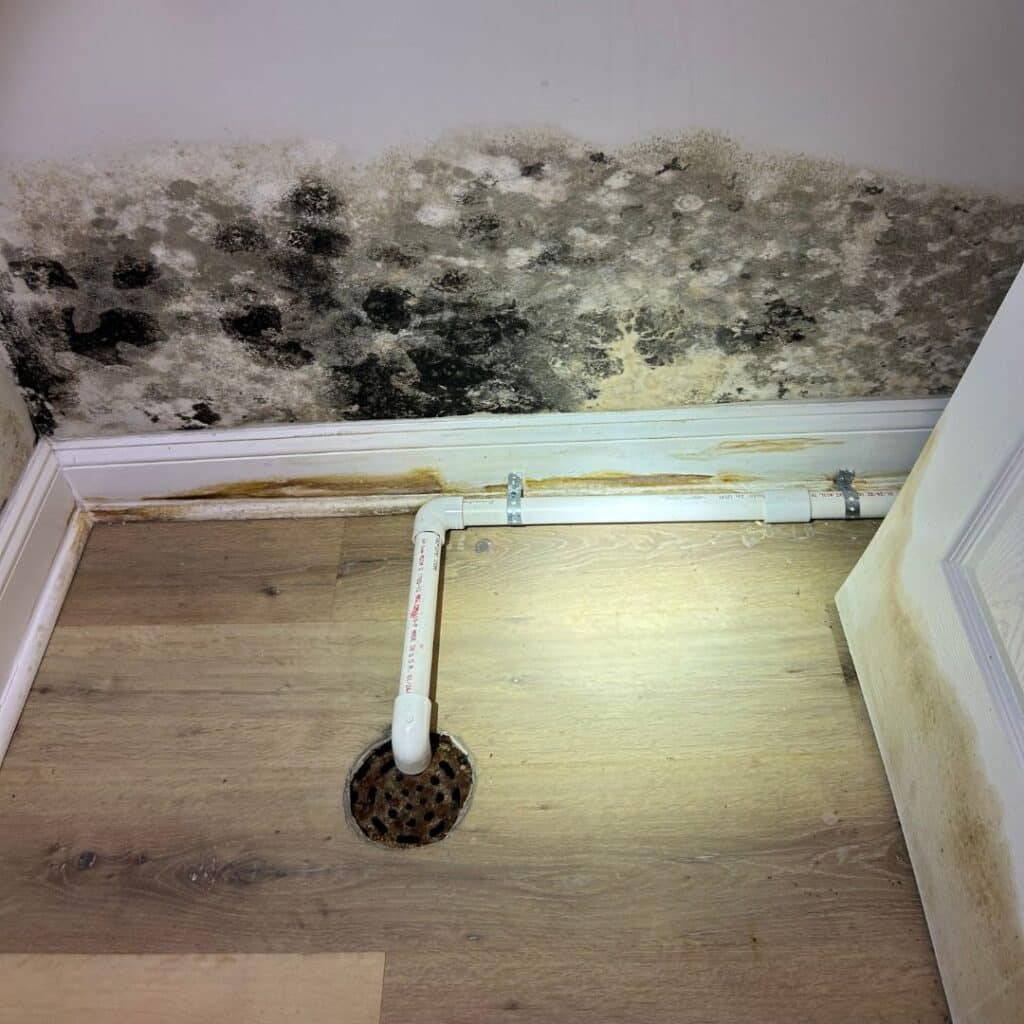
Basement Mold Control Techniques
Basement mold control can be tricky unless you install advanced methods to create a mold-free environment. Some of the best tools are:
Installing a sump pump: The best way to control excess water is to install a floor drain around the interior perimeter of your basement, which diverts water into a sump pump to be pumped out of your basement to prevent flooding and moisture issues.
Use mold-resistant materials: Paint, drywall, and insulation are available in mold-resistant materials. Use them whenever possible.
Regular cleaning and maintenance: Keep mold-prone areas in your basement free from clutter and clean the space regularly.
Professional Solutions for Long-Term Mold Prevention
A DIY approach is fine for small areas, but when your mold problem is widespread, the best approach is to call in a professional. They have the tools and knowledge to get the job done right.
When to seek professional help?
- A professional solution is usually best if you have persistent moisture issues that aren’t easily fixed.
- If you are experiencing large areas of mold growth or recurring mold, call in the experts.
Mold removal is the best thing you can do for your family’s health. It eliminates respiratory issues and protects your home’s structural integrity. A professional cleaning will create a healthy home with clean, mold-free air.
Dry Otter Waterproofing has the experience and knowledge to rid your basement of harmful mold. Our comprehensive waterproofing systems and thorough inspection will offer the peace of mind that your home is protected.
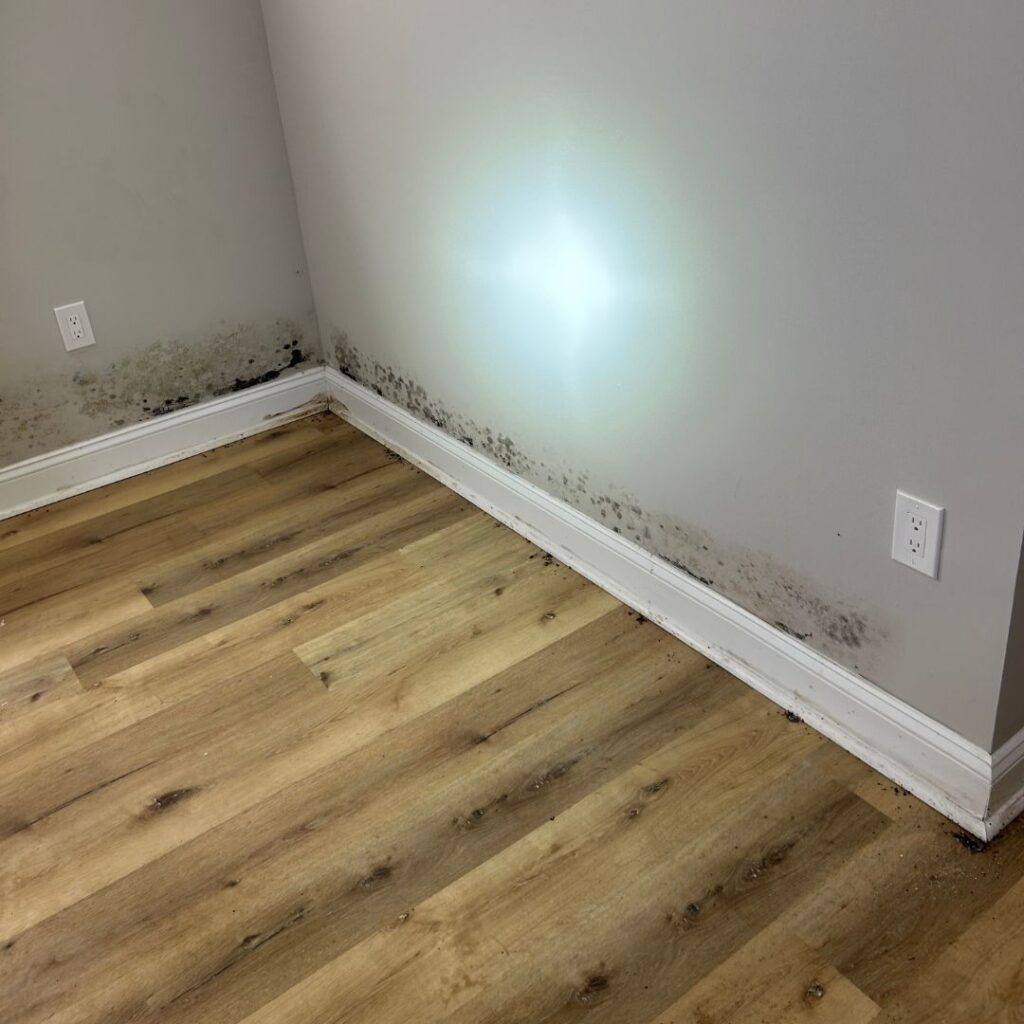
Ongoing Monitoring and Maintenance
Dry Otter Waterproofing offers an annual maintenance program that will keep your basement safe and dry.
If you use our waterproofing services, a yearly inspection will monitor the condition of your basement to keep it mold-free. We will:
- Thoroughly inspect your basement to identify any issues.
- Check for mold and mildew.
- Clean and change the filter in your dehumidifier.
- Check your sump pump for optimum operation.
- Encapsulation checks ensure the plastic and foam board liners are intact.
At the very least, homeowners should conduct regular inspections for leaks, moisture, and early signs of mold.
Keep your gutters and downspouts clear to prevent water pooling, and conduct seasonal maintenance checks, especially after heavy rain or snowmelt.
Staying proactive in mold prevention will keep your home safe and your family healthy. Contact Dry Otter for a free consultation on mold prevention and basement waterproofing.
